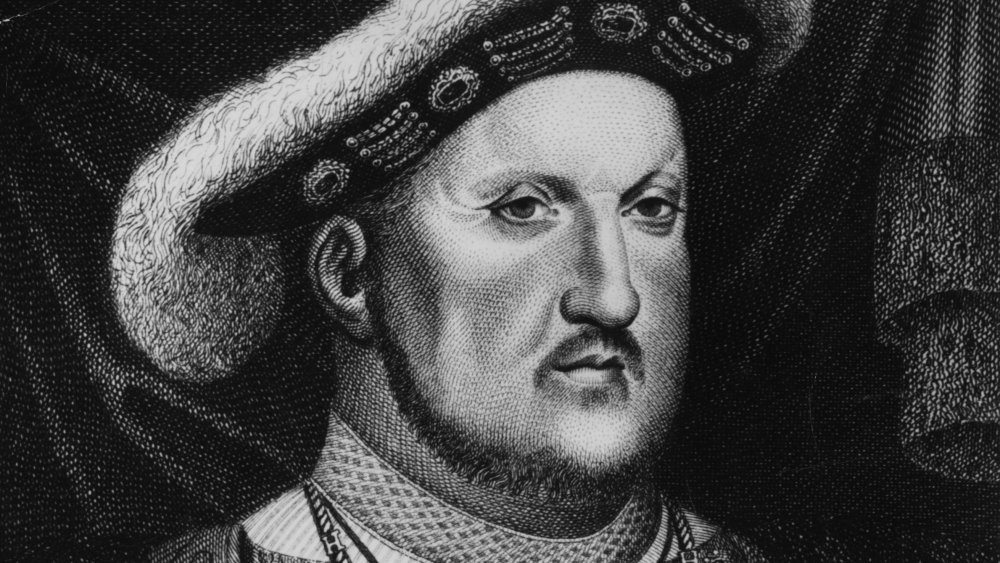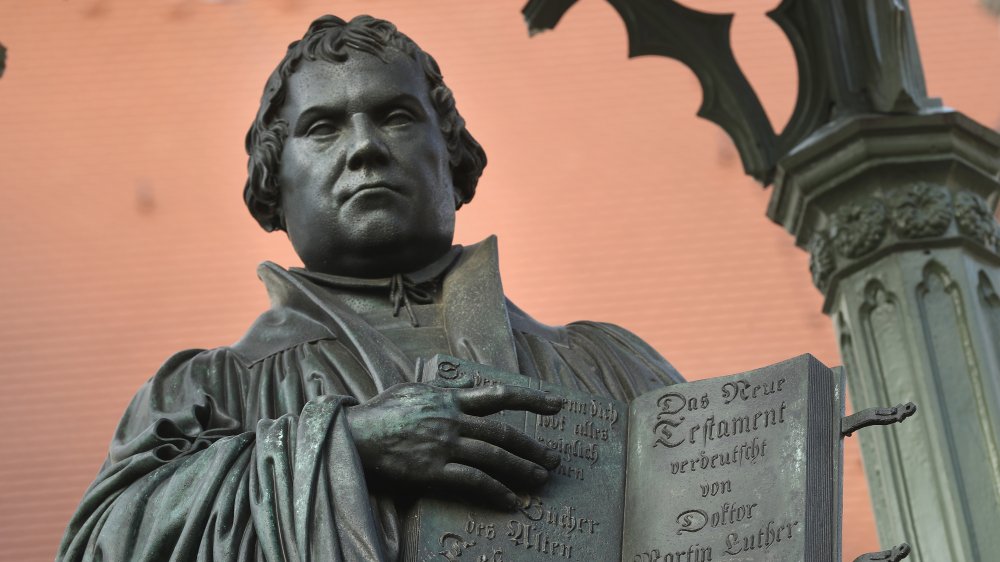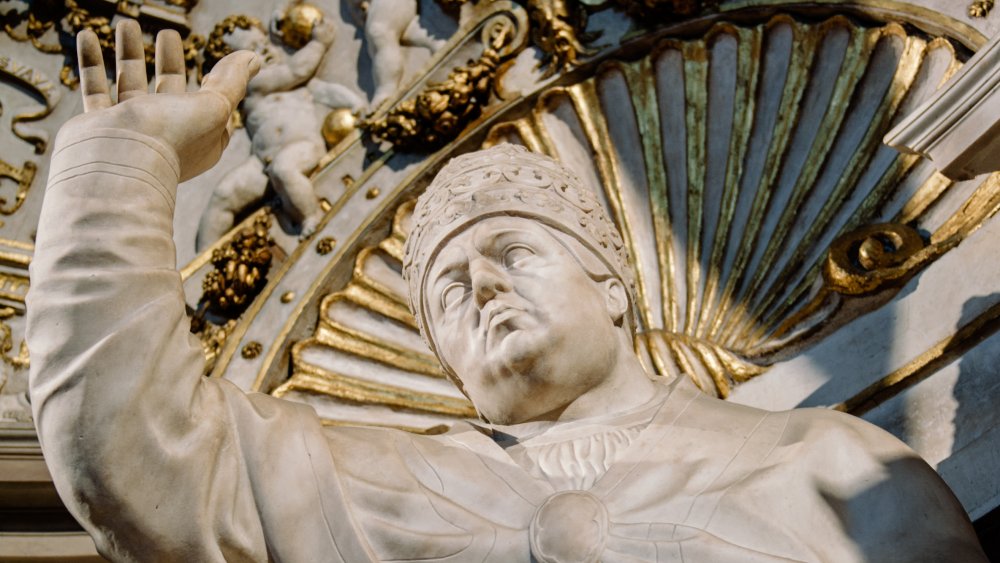The Truth About Henry VIII's Relationship With The Catholic Church
If Henry Tudor — England's King Henry VIII — had posted a dating profile, no doubt it would have included the words "It's complicated." We all are, really, at heart, but like the man said, with great power comes great potential for really massive social upheaval. Henry isn't the only monarch to try to switch things up country-wide, but the depth and breadth of it (and we aren't just talking about how much he ate) is kind of mind-boggling.
The first thing to remember about Henry and his "will you/won't you" relationship with Catholicism is that England, that sceptered isle, was a Catholic country when he assumed the throne in 1509 at the tender age of 17. It had been for centuries, as was most of Western Europe. By all reports, Henry was handsome and wealthy, witty and creative and quite an athlete, and a poet and musician to boot, as Biography relates. No doubt his temptations far surpassed those of other ordinary mortals, and no doubt he gave in to them every so often, judging by his list of mistresses.
Henry had nothing good to say about Martin Luther
Yet Henry was also known for his piety. The man who eventually ran through six wives (well, five, since he was still married to #6 when he passed) actually wrote a book-length defense of Catholicism in the form of a denunciation of Martin Luther, the match who sparked the Protestant Reformation in Germany. As History tells us, Henry called Luther, a former priest, "a venomous serpent, a pernicious plague, infernal wolf, an infectious soul, a detestable trumpeter of pride, calumnies and schism." The book sold quite well, considering England's level of literacy and the high price of books, and a grateful Pope Leo X gave Henry the title "Fidei Defensor" — "Defender of the Faith."
The bromance 'twixt Pope and Prince was not to last. Henry had obtained special permission from Rome to marry his brother's widow, Catherine of Aragon, but no male heir resulted. Henry and Catherine were married for well over 20 years before he decided to try a different womb, that of Anne Boleyn. He asked the pope to call a foul on the previous declaration, but that was refused.
Once upon a time, King Henry VIII and Pope Leo X got along
And so Henry broke England from Rome, founded his own Church of England with himself as its head, got his annulment, married Anne, and so forth. Repeat as necessary.
The other point of reference, however, is monetary, as these things tend to be. The Elizabeth I site points out that "Henry was arguably a Catholic at heart, and changed the beliefs of the Church very little." After creating his own church, Henry moved to dissolve the existing Catholic monasteries and convents, which often had large landholdings as well as deep financial pockets of their own. Henry was nothing if not profligate in terms of national and personal finances, and the assets of the Church came to the royal treasury. That's when Henry was excommunicated by the Catholic Church.
Some scholars, as the BBC says, think Henry retained a vestige of Catholicism in his heart until his final hours. Was it force of habit, or was it some kind of deathbed conversion? Like we said: complicated.


